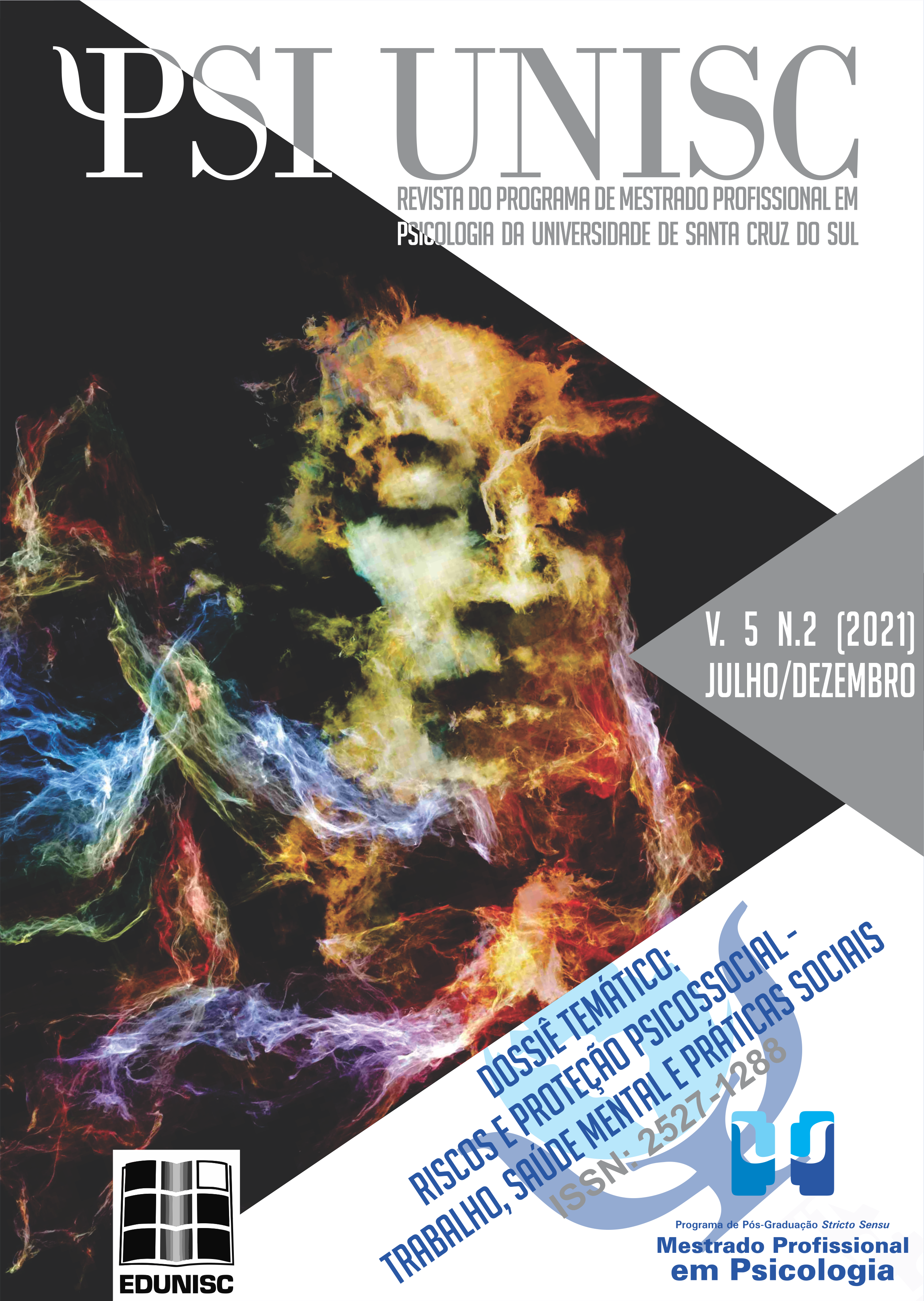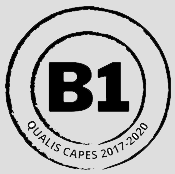Teaching and learning in Social Psychology in emergency remote education
DOI:
https://doi.org/10.17058/psiunisc.v5i2.16224Keywords:
Social Psychology, Educational technology, Teaching methods, Social equality, Pandemic.Abstract
The pandemic of the new coronavirus, given the need for social distance, brought the challenge of Emergency Remote Education to universities. The purpose of this article is to reflect on the experiences built over a semester in the discipline of Social Psychology, in the remote mode of teaching. Inspired by the engaged pedagogy of bell hooks, we reflected on three teachings from this experience: the pandemic is not democratic - the denial of the right to education; understanding the ERE and the limits of the lecture - conversation and sharing stories; and collaborative online learning, the learning community and critical thinking. We emphasize that the use of digital information and communication technologies enabled the construction of significant learning, but we have as challenges the appropriation of these more participatory methodologies in the face-to-face model and the monitoring and inclusion of students who, for various reasons, were unable to link to the remote semester. Probably the difficulties experienced by these students already existed, but the social, cultural and economic conditions that support social inequalities have become more visible with the pandemic, and this should make us aware when we return to classes in person.The pandemic of the new coronavirus, given the need for social distance, brought the challenge of Emergency Remote Education to universities. The purpose of this article is to reflect on the experiences built over a semester in the discipline of Social Psychology, in the remote mode of teaching. Inspired by the engaged pedagogy of bell hooks, we reflected on three teachings from this experience: the pandemic is not democratic - the denial of the right to education; understanding the ERE and the limits of the lecture - conversation and sharing stories; and collaborative online learning, the learning community and critical thinking. We emphasize that the use of digital information and communication technologies enabled the construction of significant learning, but we have as challenges the appropriation of these more participatory methodologies in the face-to-face model and the monitoring and inclusion of students who, for various reasons, were unable to link to the remote semester. Probably the difficulties experienced by these students already existed, but the social, cultural and economic conditions that support social inequalities have become more visible with the pandemic, and this should make us aware when we return to classes in person.Downloads
References
Arruda, E. P. (2020). Educação Remota Emergencial: elementos para políticas públicas na educação brasileira em tempos de Covid-19. EmRede – Revista de Educação à Distância, 7(1), 257-275. doi: 0000-0002-9201-6530
Bates, A. W. (2017). Educar na era digital: design, ensino e aprendizagem. São Paulo: Artesanato Educacional.
Butler, J. (2020). El capitalismo tiene sus límites. In Editorial: ASPO Aislamiento Social Preventivo y Obligatorio (Ed.), Sopa de Wuhan: pensamiento contemporáneo en tempos de pandemia (pp. 59-66). Buenos Aires: ASPO.
Conselho da Unidade do Instituto de Psicologia. (2020). Apreciação da Proposta de Regulamentação de Ensino Remoto Emergencial apresentada pela PROGRAD através do Ofício n. 025/PROGRAD/UFRGS. Porto Alegre: Autor.
Decreto n. 9057, de 25 de maio de 2017. Regulamenta o art. 80 da Lei nº 9.394, de 20 de dezembro de 1996, que estabelece as diretrizes e bases da educação nacional. Recuperado de http://www.planalto.gov.br/ccivil_03/_Ato2015-2018/2017/Decreto/D9057.htm
Departamento de Psicologia Social e Institucional. (2020). Plano de Ensino Psicologia Social I. Porto Alegre: Instituto de Psicologia, Departamento de Psicologia Social e Institucional.
Gomes, C. A., Oliveira e Sá, S., Vázquez-Justo, E., & Costa-Lobo, C. (2020). A Covid-19 e o Direito à Educação. Revista Internacional de Educación para la Justicia Social, 9(3), 1-14. Recuperado de https://revistas.uam.es/riejs/article/view/12176
Hodges, C. B., Moore, S., Lockee, B. B., Trust, T., & Bond M. A. (2020). The difference between emergency remote teaching and online learning. EDUCAUSE Review. 27 mar. 2020. Recuperado de https://er.educause.edu/articles/2020/3/the-difference-between-emergency-remote-teaching-and-online-learning
hooks, b. (2020). Ensinando Pensamento Crítico: sabedoria prática. São Paulo: Elefante.
Maia, C., & Mattar, J. (2008). ABC da EaD: a educação a distância hoje. São Paulo: Pearson Prentice Hall.
Downloads
Published
How to Cite
Issue
Section
License
The submission of originals to this journal implies the transfer, by the authors, of the printed and digital publication rights. The copyrights for the published articles are those of the author, with periodical rights on the first publication. Authors may only use the same results in other publications clearly indicating this journal as the medium of the original publication. Because we are an open access journal, we allow free use of articles in educational and scientific applications provided the source is cited under the Creative Commons CC-BY license.




